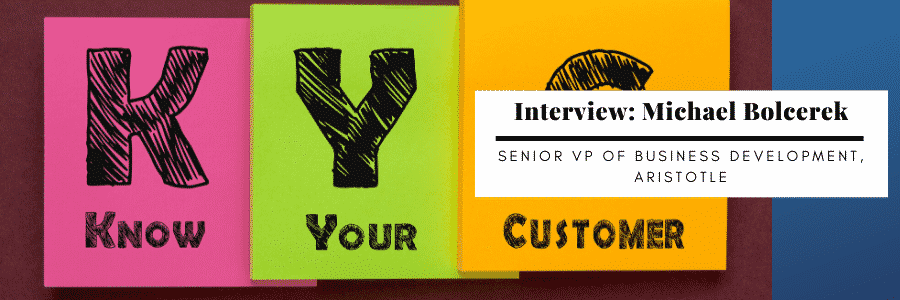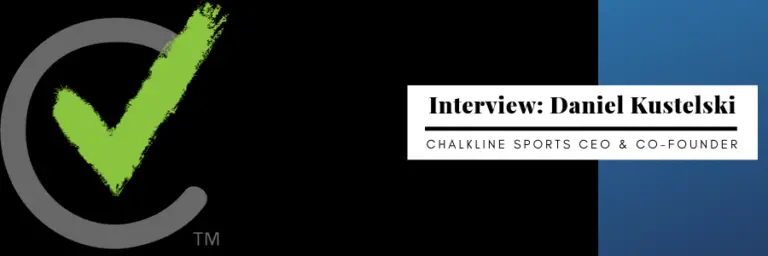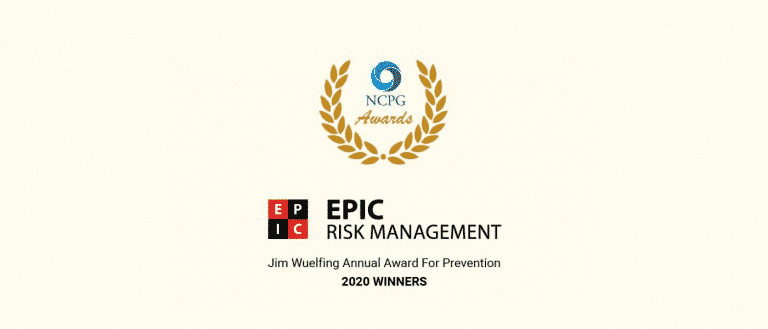Know Your Customer: The Backbone Of Legal Online Gambling In The USA

In this two-part interview series, Betting USA talked with two leading companies, GeoComply and Aristotle, to better understand the technology used to perform geolocation and player verification checks in US online sports betting, casino, and poker markets.
In this, the second installment of the series, Betting USA spoke with Michael Bolcerek, the senior vice president, business development of Aristotle, and returning from Part 1 of this series, Lindsay Slader, the vice president of regulatory affairs at GeoComply.
Aristotle is currently licensed in New Jersey, Nevada, Pennsylvania, West Virginia, and Indiana. The company performs KYC checks in those states through individual operators and is also one of the KYC companies that recently teamed up with GeoComply as part of its IDComply solution (more on that in a moment).
Betting USA turned to Bolcerek to get a better understanding of the Know-Your-Customer (KYC) player identification process, while Slader discussed the recent integration of KYC providers like Aristotle into GeoComply’s geolocation technology.
The Onboarding Process
Speaking to Betting USA, Bolcerek explained the typical onboarding process for a new customer at a licensed US online sports betting and gaming site.
Michael Bolcerek: The customer will submit their name, their address, their date of birth, and either the full SSN or final four of their SSN. Then we’ll verify that information against a variety of different data assets and verify the details submitted, or if we can’t, notify the operator that they’ll need to use another methodology.
During the onboarding process, we verify identity through things like government lists and credit bureaus [this is similar to an online credit card application process]. We’ll also check anti-money laundering lists or for a politically exposed person. We do that to verify that people are not on a terrorist watch list or a financial OFAC list. And some states flag people in arrears with child support.
And while we aren’t currently doing this for operators, they do check athlete and referee lists.
Those are some of the preliminary, initial KYC checks.
Upon Further Review
A common complaint on social media is a request for additional documents after the initial onboarding process. These requests by the operators seem arbitrary, and in many cases, occur after a withdrawal request. But as Bolcerek explains, it’s at least in part a matter of due diligence, and each operator has different thresholds when it comes to risk.
Michael Bolcerek: After the standard onboarding process, there can be deeper checks. At a certain point, a certain financial exposure level, the operator may choose to do a document check.
For example, when there is a customer with higher deposit limits, the operator has a diligence requirement. The operator needs to make sure that they’re checking a higher order of KYC.
There are ways to do it as an automated process, and there are ways for people to review documents themselves.
The Automated Way
Aristotle offers a mobile capture product that captures the driver’s license or passport and verifies that information. We’ll do a selfie, a biometric comparison, and then finally it will analyze the document for elements within that documents, if there’s a state seal or in the case of a California driver’s license, if it has a mountain and a bear. There’s also a barcode on the back of a driver’s license, and that needs to match what’s on the front of the driver’s license.
So that’s the automated process.
The Manual Way
A lot of the operators will have in-house teams looking at documents too. So some may ask for financial documents or for a copy of a W2 to make sure the funds are flowing from legitimate sources. As you go up the risk level, you may employ different approaches.
Most of the regulators in the US required name, address, date of birth, and SSN for verification. So all of the operators will do that if they’re complying with the regulations. The other levels of KYC are dependent on the operator and their risk assessment based on their internal controls and internal guidelines. That determines at what level they feel the need to initiate those checks.
If someone’s betting $15,000, you want to make sure certain financial underpinnings exist that allow them to bet at that level. This is happening in real-time in the UK (as a function of looking at problem gambling and ensuring people have sufficient funds to game at those levels), and we believe you’ll start to see more of that in the US.
The Future Way
We also have a video verification product called Face-to-Face that’s in use in Germany. In Germany, the typical way it’s been done is to have a postman go by and check your documents. Now we can do a video verification, where a live operator and you record the entire transaction, the entire engagement.
Expect Deeper Checks if You Lack a Credit History
Anyone lacking a credit history is likely to fall into the deeper KYC check basket. Like applying for a traditional loan, the longer your credit history, the easier it is to reach a decision. Anyone who deals in cash or prefers to bet with bitcoin is likely going to have to jump through more hoops to receive a KYC approval.
Michael Bolcerek: The younger demographic may not open credit card accounts early on, and therefore they’re not as visible within the credit networks. It’s a bit of a challenge with the 21-25 crowd that’s using Venmo and PayPal rather than traditional credit instruments.
Moving forward, I can see leveraging biometrics or mobile capture devices is something that regulators may want to consider. Things that will make it a little bit easier for the millennial crowd to get onboarded.
And the same can be said for anyone with a sparse credit history [like professional poker players and sports bettors that are accustomed to dealing in cash]. There were quite a lot of younger, capable poker players during the poker boom, and again, they may not have much in the way of credit history.
Integrating KYC and Geolocation
GeoComply recently announced the launch of IDComply.
IDComply is integrated into the company’s geolocation technology, and by working with multiple KYC companies it can provide a waterfall KYC solution.
Lindsay Slader: One of the most common questions we’ve always received from new clients and partners is, do you do anything other than geolocation?
There are a handful of compliance controls that are part of the typical user experience. Geolocation is one, KYC is another, and they often fall into the same suite of checks that may be related to responsible gaming or payments. So in response to that question, and what we’ve seen in that a lot of the data that we collect when we locate a user has a very large crossover with the KYC process.
So really, we were looking to build out the fleet of data and tools that we already have. If you’re trying to verify a user, is there a way to leverage data that we may have on their device that lends itself to fighting fraud or fighting chargebacks from the payment processors’ perspective?
We’ve partnered with a couple of KYC companies already to package and resell their service as a part of our suite of tools and are still looking for more partners to make it as seamless as possible.
The approach that we’re taking is to have a waterfall solution where you can bundle in multiple providers, and say, let’s try the first one and see if it can verify the user. If you can’t, you go on to another, and at the end of the day, the operator only needs to do one integration rather than integrating with multiple KYC providers to have that level of support.







